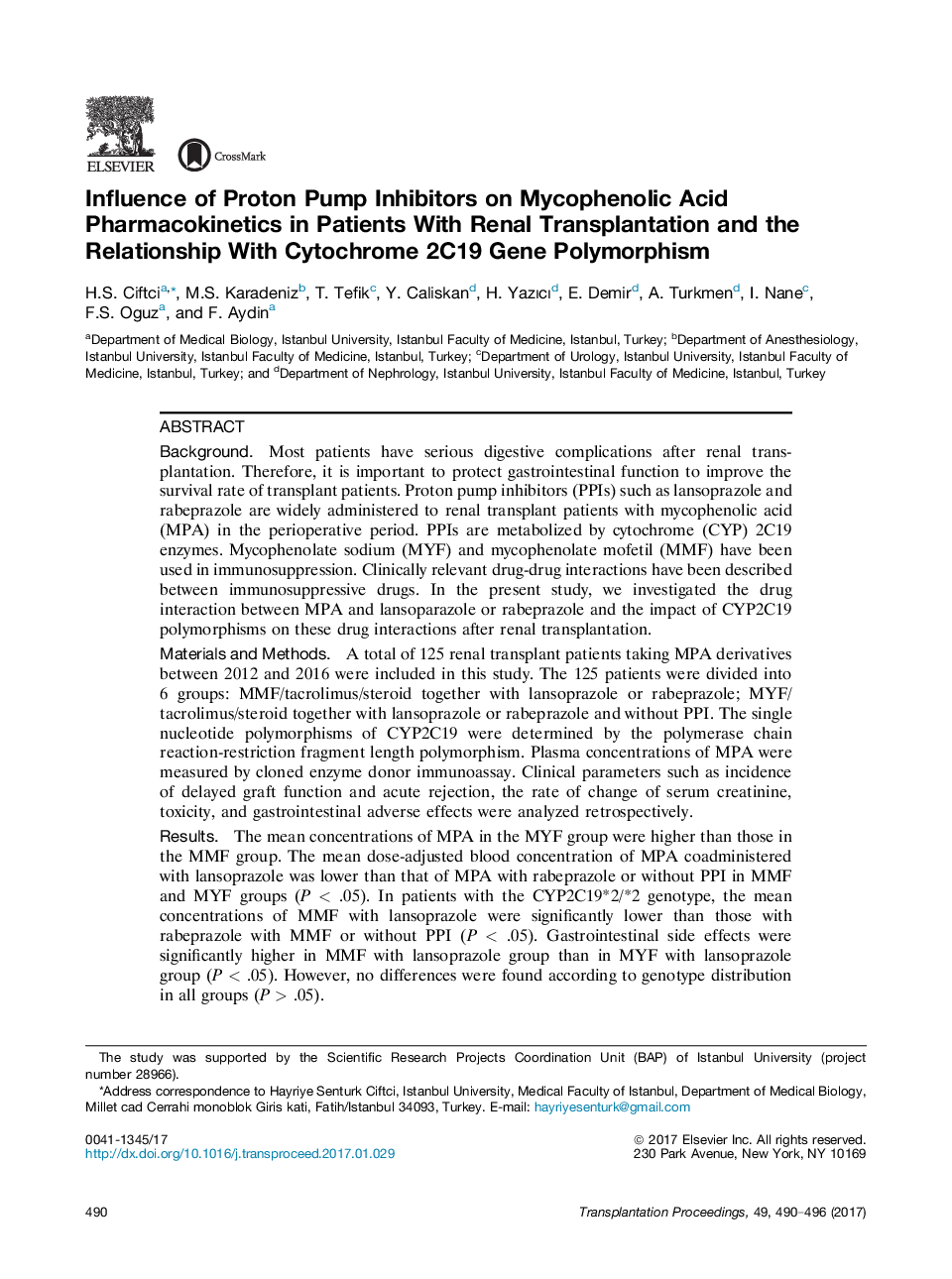| کد مقاله | کد نشریه | سال انتشار | مقاله انگلیسی | نسخه تمام متن |
|---|---|---|---|---|
| 5728862 | 1411672 | 2017 | 7 صفحه PDF | دانلود رایگان |

BackgroundMost patients have serious digestive complications after renal transplantation. Therefore, it is important to protect gastrointestinal function to improve the survival rate of transplant patients. Proton pump inhibitors (PPIs) such as lansoprazole and rabeprazole are widely administered to renal transplant patients with mycophenolic acid (MPA) in the perioperative period. PPIs are metabolized by cytochrome (CYP) 2C19 enzymes. Mycophenolate sodium (MYF) and mycophenolate mofetil (MMF) have been used in immunosuppression. Clinically relevant drug-drug interactions have been described between immunosuppressive drugs. In the present study, we investigated the drug interaction between MPA and lansoparazole or rabeprazole and the impact of CYP2C19 polymorphisms on these drug interactions after renal transplantation.Materials and MethodsA total of 125 renal transplant patients taking MPA derivatives between 2012 and 2016 were included in this study. The 125 patients were divided into 6Â groups: MMF/tacrolimus/steroid together with lansoprazole or rabeprazole; MYF/tacrolimus/steroid together with lansoprazole or rabeprazole and without PPI. The single nucleotide polymorphisms of CYP2C19 were determined by the polymerase chain reaction-restriction fragment length polymorphism. Plasma concentrations of MPA were measured by cloned enzyme donor immunoassay. Clinical parameters such as incidence of delayed graft function and acute rejection, the rate of change of serum creatinine, toxicity, and gastrointestinal adverse effects were analyzed retrospectively.ResultsThe mean concentrations of MPA in the MYF group were higher than those in the MMF group. The mean dose-adjusted blood concentration of MPA coadministered with lansoprazole was lower than that of MPA with rabeprazole or without PPI in MMF and MYF groups (PÂ < .05). In patients with the CYP2C19*2/*2 genotype, the mean concentrations of MMF with lansoprazole were significantly lower than those with rabeprazole with MMF or without PPI (PÂ < .05). Gastrointestinal side effects were significantly higher in MMF with lansoprazole group than in MYF with lansoprazole group (PÂ < .05). However, no differences were found according to genotype distribution in all groups (P > .05).ConclusionPolymorphisms in CYP2C19 are related to the metabolic oxidation of drugs to varying degrees. Both genetic and clinical factors in pharmacokinetics may help to make further progress toward individualized therapy to yield maximum efficacy with minimal side effects.
Journal: Transplantation Proceedings - Volume 49, Issue 3, April 2017, Pages 490-496